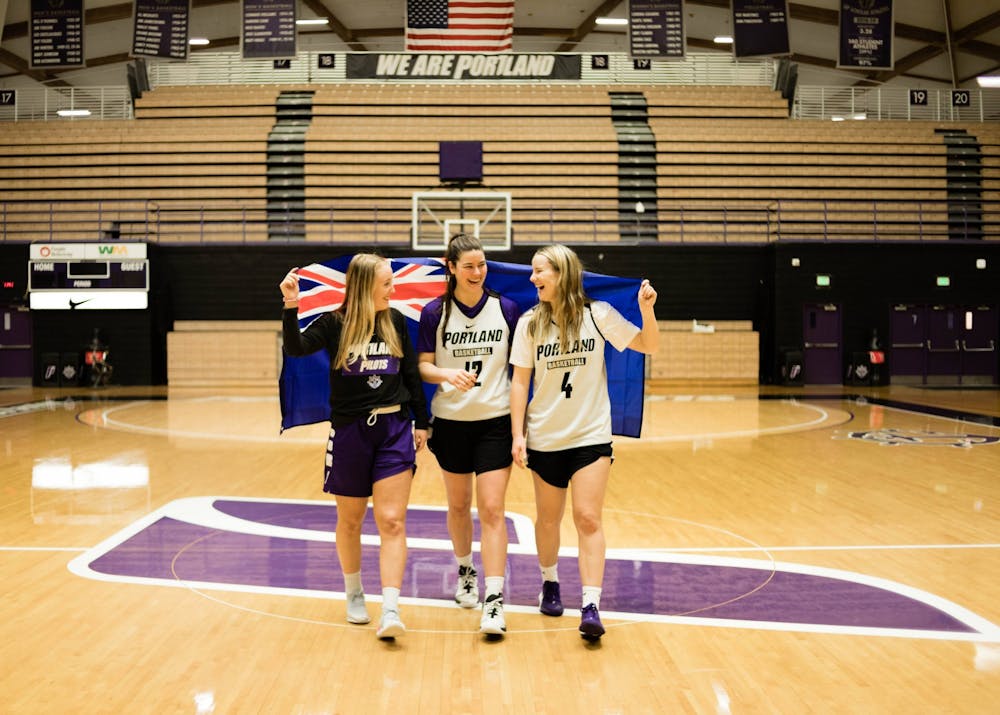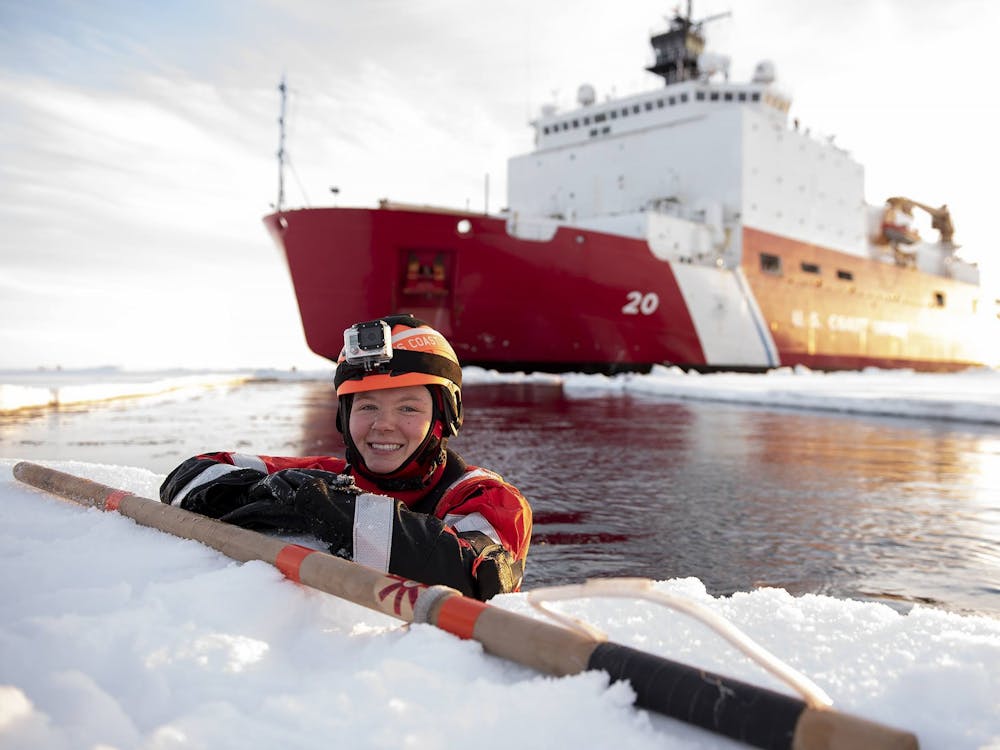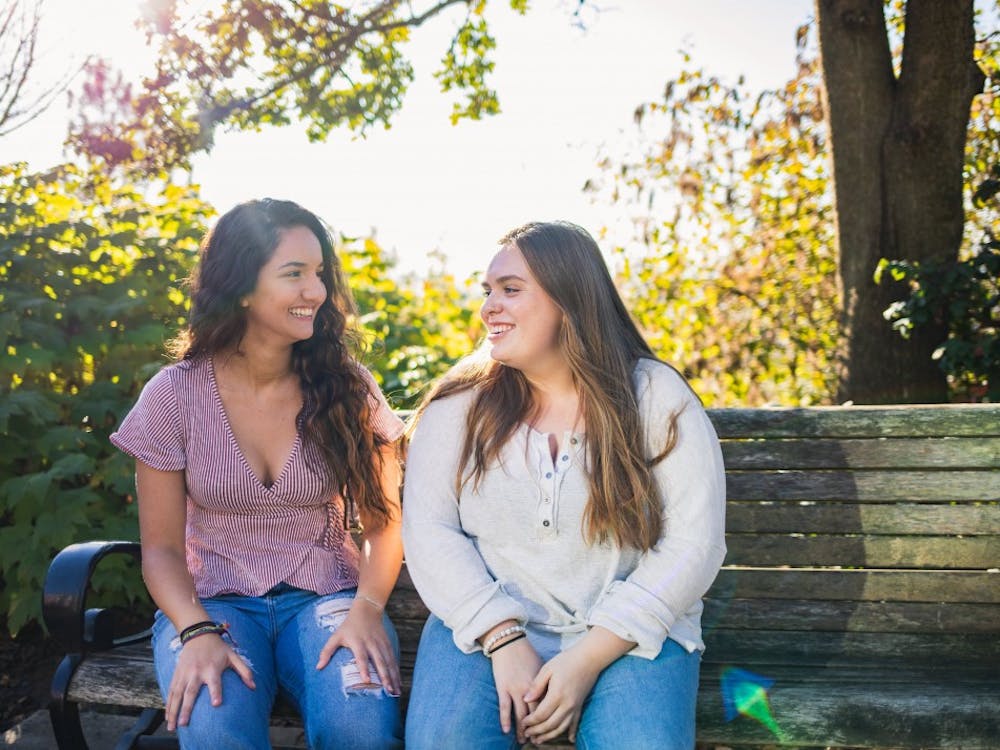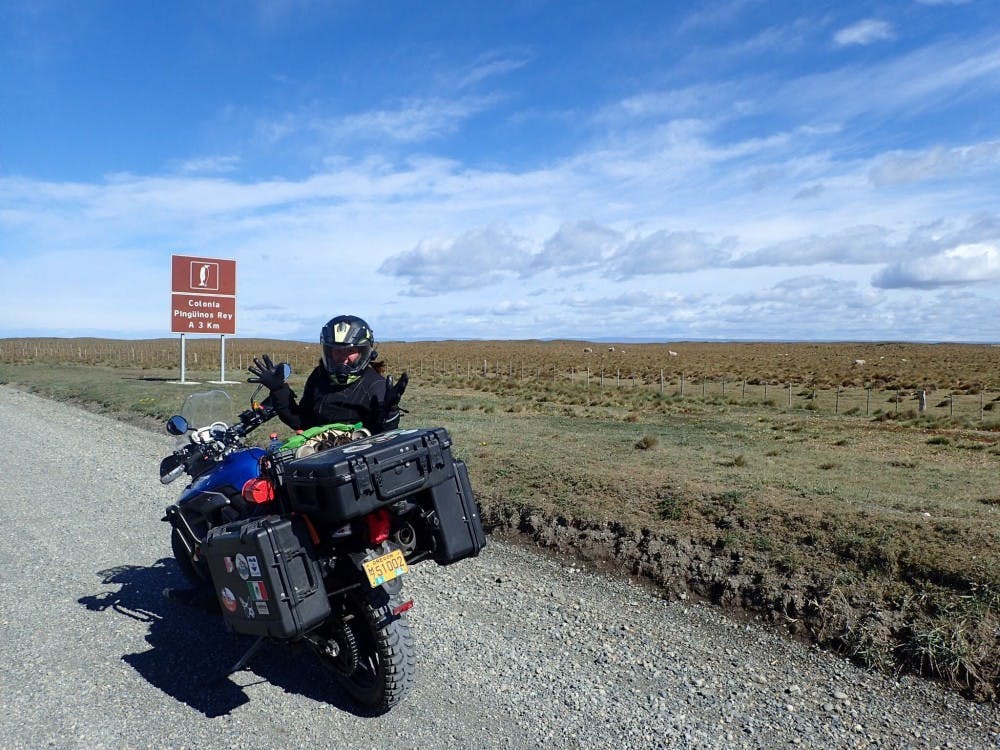When the Australian Bushfires come to mind, it conjures the gut-wrenching images of good samaritans helping koalas or of firefighters surrounded by trees engulfed in flames. According to the BBC, more than 2,500 homes and 11 million hectares (27.2 million acres) of bush, forest and parks have been burned in Australia since September 2019, affecting states New South Wales and Victoria dramatically. Millions of animals have died in the fires or from fire-related injuries. Even after the bushfires ravaged through Australia, the effects of the fires are still apparent.
For most students at the University of Portland, these fires are a world away. For three basketball players, the fires are close to home. Freshman Alex Fowler and sophomore Haylee Andrews call Townsville, Queensland their home and freshman Keeley Frawley hails from Melbourne, Victoria. The homes and families of the trio weren’t personally harmed, but the fires burn into the identity of the continent.
“Not many people have been to Australia so they don’t know what the bushland is like and how sacred koalas are to Australia, to our home,” Andrews said. “It’s the down under, it’s the bush, it’s the bugs and the animals, all that that’s been lost to these fires, [we want] people to be aware of what we have lost as a whole country.”
The Australian players, backed by the university’s basketball community and athletics, have worked to raise awareness at UP and help their home in any way they can. Pilot Athletics hosted a tribute night on Jan. 11 against Saint Mary’s to appeal to the community for donations to the Red Cross. The Chiles Center hosted an Australian band who played their national anthem.
“At the basketball game, we got to share what’s happening back home, obviously how it’s affecting the wildlife,” Frawley said. “They’ve helped in raising awareness for us.”
At the Saint Mary’s game, videos of the three Pilots played to add a personal touch to the call for donations to the Australian cause.
“Being so far away, we’re trying to do whatever we can to help show support to the people affected and the communities and that’s what we had at the Saint Mary’s game,” Andrews said. “Whether it’s to the victims to the volunteers, the firefighters, the wildlife, just in any way we can share the awareness of what’s happening and get other people from around the world to help.”
Australia, a grassland desert savannah, has had fires for millions of years and lots of species are well adapted to fires; the indigenous Australians were well versed in fire management. Heather Carpenter, a professor of environmental studies, emphasizes the effect that colonization had on Australian fire management.
“When the British came in, they didn’t like fire,” Carpenter said. “They come from a green land that never burns, so for them, fire is really scary … So, there was a lot of fire suppression.”
Fire management looks different all around the world. Indigenous fire management, according to Carpenter, has a more special, individualized connection to the land built off years of living on that land and knowing exactly what it takes to manage it.
There is no one cause to the Australian Bushfires, but it is a function of fire suppression, climate change and changes in land use, Carpenter said.
This bout of fires burned much worse than in the past because of years of dry seasons dehydrating the surface and the soil. Carpenter explains the dried out soil caused the roots and the seeds to burn, as well, all releasing record amounts of Carbon (CO2) into the atmosphere.
“Every kindergartener knows a plant breathes in CO2 and out oxygen,” Carpenter explained.“I burn a plant, it’s no longer breathing that in, so that’s already more CO2 in the atmosphere. If you add the carbon that was in this plant and in the soil, it's almost a double add of CO2 because you're no longer taking away CO2.”
The toll of the fires on Australia’s native animals and wildlife will take ample time to recover, as will their natural habitats, especially in the populations of the koala, a “vulnerable” species. The exposure to the excess CO2 mixed with smoke in the air will have a deteriorating effect on the air quality of the country. The fires will cost the economy significantly, as they have hindered tourism and the cost of insurance claims has exceeded $165 million USD as of Dec. 20. The estimated cost of disruptions due to smoke in Sydney is set to reach $8-33 million USD according to the Insurance Council of Australia, SGS Economics.

(From left to right) Haylee Andrews, Alex Fowler and Keeley Frawley all hail from Australia, which has been affected by fires since September of 2019.
Rebuilding wildlife and habitats, tourism and homes will take years and millions of dollars, and with the effects of climate change exacerbating the problem, there is a call for consolidation on a solution.
To move forward in the future, Carpenter calls for us to acknowledge climate change and do our best to get the planet’s population in action to solve this problem. She also suggests we integrate Traditional Ecological Knowledge (TEK) into fire management by talking to people who have traditions with the land in a respectful and collaborative way to work together and find a long-term solution.
“It would mean a lot to us, but more to the people who have been affected … we can’t do much being away over here,” Andrews said. “Anything helps, even just a dollar, it’s a dollar extra that goes to getting water supply.”
New South Wales Fire Ease https://www.rfs.nsw.gov.au/volunteer/support-your-local-brigade
New South Wales Rural Fire Service Association (RFSA) https://www.givenow.com.au/rfsa
Australian Cross (Australian branch of Red Cross) https://www.redcross.org.au/ (Donations: https://www.redcross.org.au/campaigns/donation-forms/australian-red-cross-donate)
World Wildlife Fund: Adopt a Koala, donate money to it each month or a set amount https://donate.wwf.org.au/adopt/koala#gs.wisds6
Morgan Wahler is a sports reporter for The Beacon. She can be reached at wahler20@up.edu.








